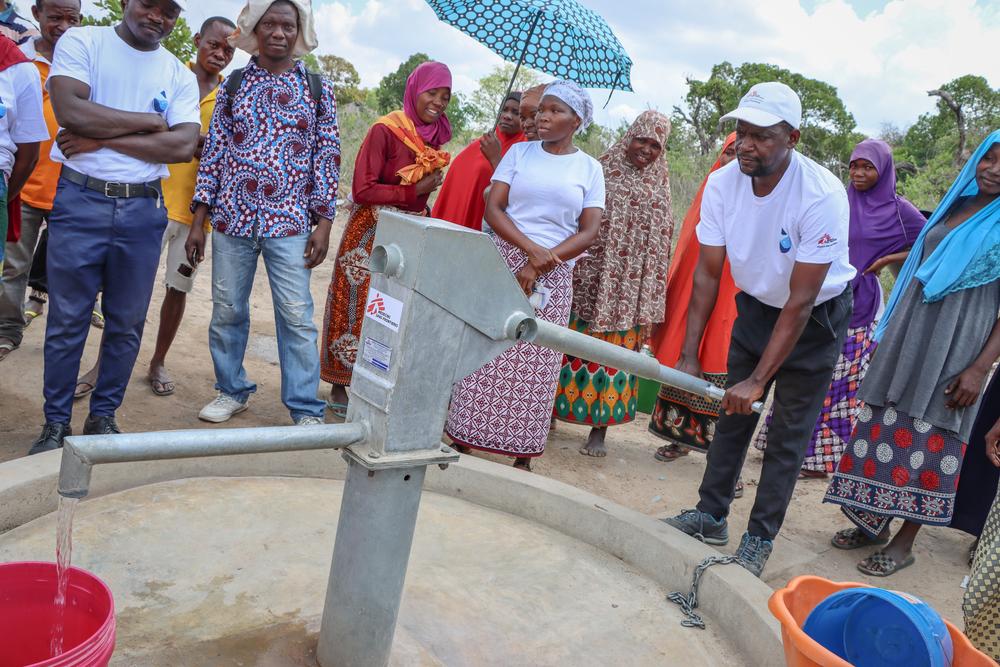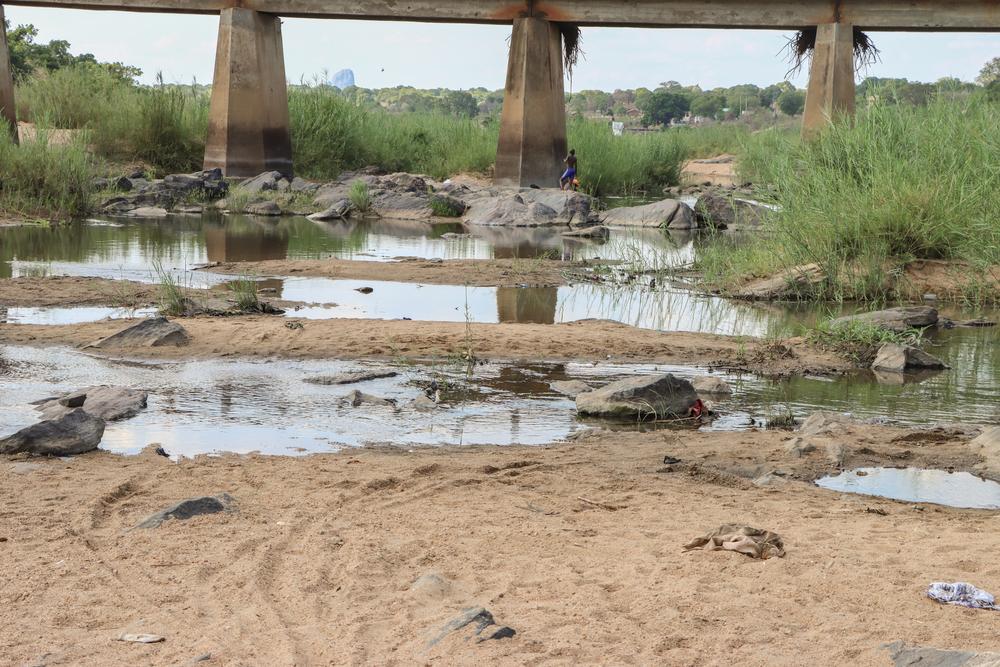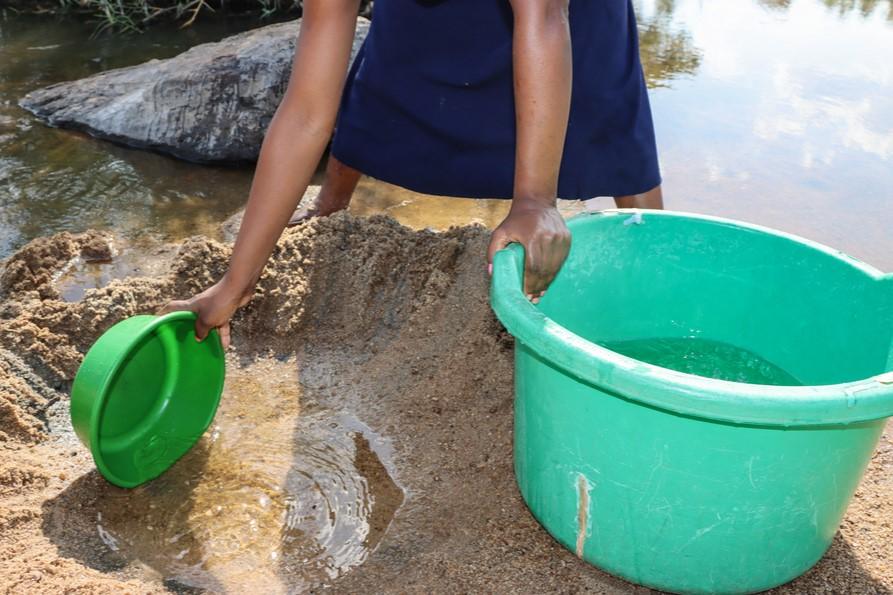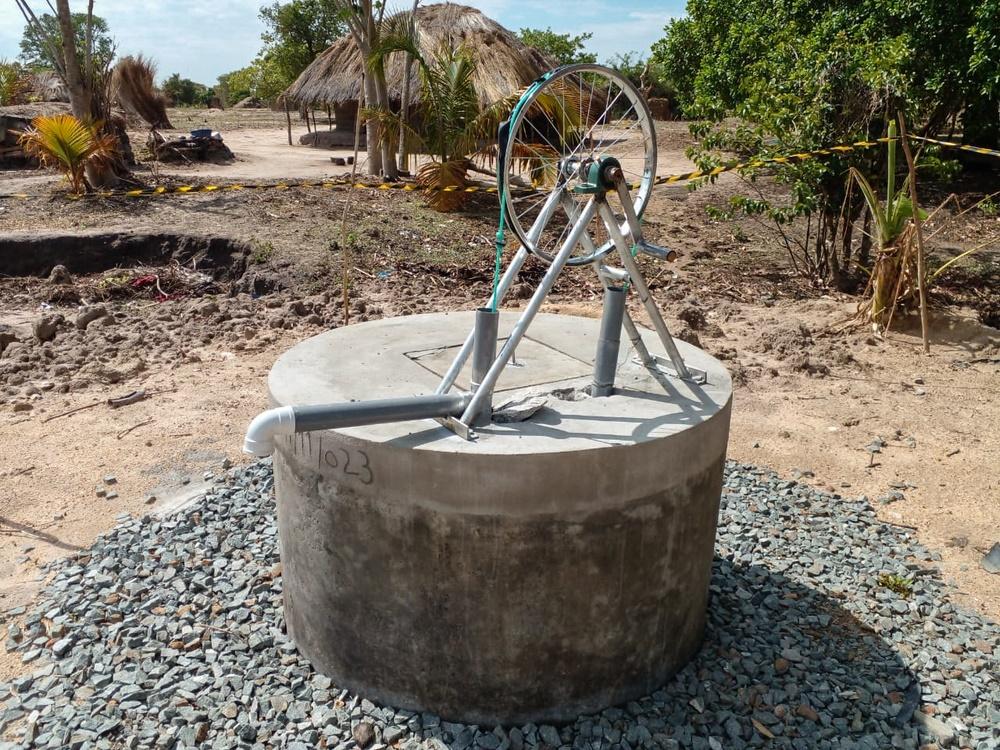Mozambique: Reviving Wells, Engaging Communities - Mitigating Neglected Tropical Diseases in Mogovolas

President of the water committee explains to communities how the water pump works. Mozambique, October 2023. © MSF/Lourino Pelembe
The Mogovolas district in the northern province of Nampula, Mozambique, grapples with a concerning prevalence of Neglected Tropical Diseases (NTDs) like scabies, bilharzia, and lymphatic filariasis. These diseases thrive due to inadequate access to safe drinking water, basic sanitation, and the adverse impacts of climate change. Irregular rainfall patterns, prolonged droughts, and the depletion of groundwater have exacerbated the situation, contributing to water scarcity.
The lack of safe drinking water not only accelerates the spread of endemic diseases but also heightens the risk of waterborne diseases such as cholera and diarrhea. Local communities, compelled by necessity, resort to stagnant water sources or endure long journeys to fulfill their basic needs.
A closer look at Mogovolas reveals a stark reality: the once-abundant wells and underground water sources have either diminished significantly or completely dried up. Rivers like Meluli and Mutacaze, lifelines for thousands in Nametil—the district's central village—are now distressingly depleted. Finding even a droplet of water is a stroke of luck.

Current stage of the Meluli River, the main source of water for the surrounding communities in Nametil. Mozambique, November 2023. © MSF/Lourino Pelembe
During our visit to the Meluli River, we met Luzília, a 20-year-old who, due to the prolonged drought, dug small holes to collect water for household chores. "Obtaining water has become exceedingly difficult. Seven of us in my household rely solely on this water source," she shared with a grave expression, highlighting the challenges her family faces due to the poor quality of river water, their only current option.
"We've experienced illness a few times from drinking this water, yet sadly, we lack any other viable alternatives." She regrets.
This scene, coupled with the adverse effects of climate change, presents a formidable and intricate challenge in Mogovolas. Addressing this challenge requires sustainable solutions and collaborative efforts to secure a healthier future for vulnerable individuals like Luzília.
Doctors Without Borders' Initiatives for Sustainable Water Solutions
To tackle these issues, Doctors Without Borders / Médecins Sans Frontières (MSF), in partnership with local authorities and communities, is implementing integrated water and sanitation initiatives in the area. The primary goal is to enhance living conditions and curtail the spread of bilharzia and scabies, along with waterborne diseases, by promoting proper hygiene practices.
These initiatives encompass health education, resilience building, and adaptation strategies through rainwater harvesting infrastructure and the rehabilitation of traditional wells and boreholes.
Eight safeguarded wells, each equipped with hand pump systems, stand as beacons of transformation within these communities. This vital initiative not only shields the communities from exposure to the bilharzia-causing worm but also promises a palpable enhancement in the overall quality of life.

A woman is digging small holes to fetch water at rio Meluli. Mozambique, November 2023. © MSF/Lourino Pelembe
In parallel, Doctors Without Borders has been diligently establishing water sources in closer proximity to these communities, eradicating the need for tough journeys in search of water. Recently, a dependable spring catering to the daily needs of the Namacaro community in Nametil was successfully established by our teams and handed over to the communities. These sources are far more than just water outlets; they stand as symbols of hope for the population, paving the way for a future mitigation from the grip of neglected tropical diseases.
Atumane Amisse, the Water Committee leader in the Namacaro community collaborating with Doctors Without Borders team, emphasised the significance and substantial benefits of the new water source for the community: "This water will be of great assistance to all of us here in our community. We are currently compiling a list of beneficiaries of this water source, enabling us to manage this resource more effectively. The installation of this pump has completely changed our lives, as water scarcity was a painful reality. Now, people have free and easy access to quality water, essential for drinking, cooking, and personal hygiene."
The former routine of waking up at 4 a.m. to trek about 5 kilometers in search of turbid water from traditional wells, often resulting in illnesses, will now be a distant memory. The new water source is not only bringing convenience but also safety and health to the Namacaro community. The effort to document users reflects collective responsibility in ensuring the sustainability of this vital resource, while clean and accessible water paves the way for a healthier and more prosperous future for everyone in the community.
Local Committees: Pioneering Community-Led Water Management
Beyond medical interventions for NTDs, Doctors Without Borders extends assistance by fostering community resilience through active engagement with local water committees. These committees receive training and guidance on water conservation, source maintenance, and proper hygiene practices to ensure sustained and safe access to drinking water.
Empowering these committees is pivotal in overseeing, managing, and safeguarding water sources. The collaboration between Doctors Without Borders and local authorities and communities aims not only to secure water availability but also to empower those communities to efficiently manage these vital resources sustainably.

View of one of the safeguarded wells equipped with hand pump systems built by Doctors Without Borders to facilitate access to water for the communities. Mozambique, October 2023. © MSF/Lourino Pelembe
The belief is that communities themselves can drive the change they seek. This approach aims to decrease NTD’s prevalence in Mogovolas and ensure enduring resilience against the challenges posed by climate change.
Yahya Latama, Doctors Without Borders' Logistics Team Leader, said that the plan to curb NTD’s contamination in Mogovolas includes building community laundries to deter women and children—who predominantly use river water for washing or recreation—from accessing water sources contaminated with bilharzia larvae.
In the meantime, Yahya foresees a challenging future for the district, anticipating escalating water crises due to the persistent droughts brought on by climate change. "The wells and boreholes that once sustained the community year-round now last 5 or 6 months," he commented.
Mozambique ranks among the countries that are most vulnerable to the climate change. Since 2022, Doctors Without Borders teams have been actively responding to climate-sensitive diseases in the Nampula province of Mozambique. The primary objective of our activities is to address the gaps in the healthcare system, in relation to neglected tropical diseases such as lymphatic filariasis and schistosomiasis, as well as vector-borne diseases like severe malaria and dengue.